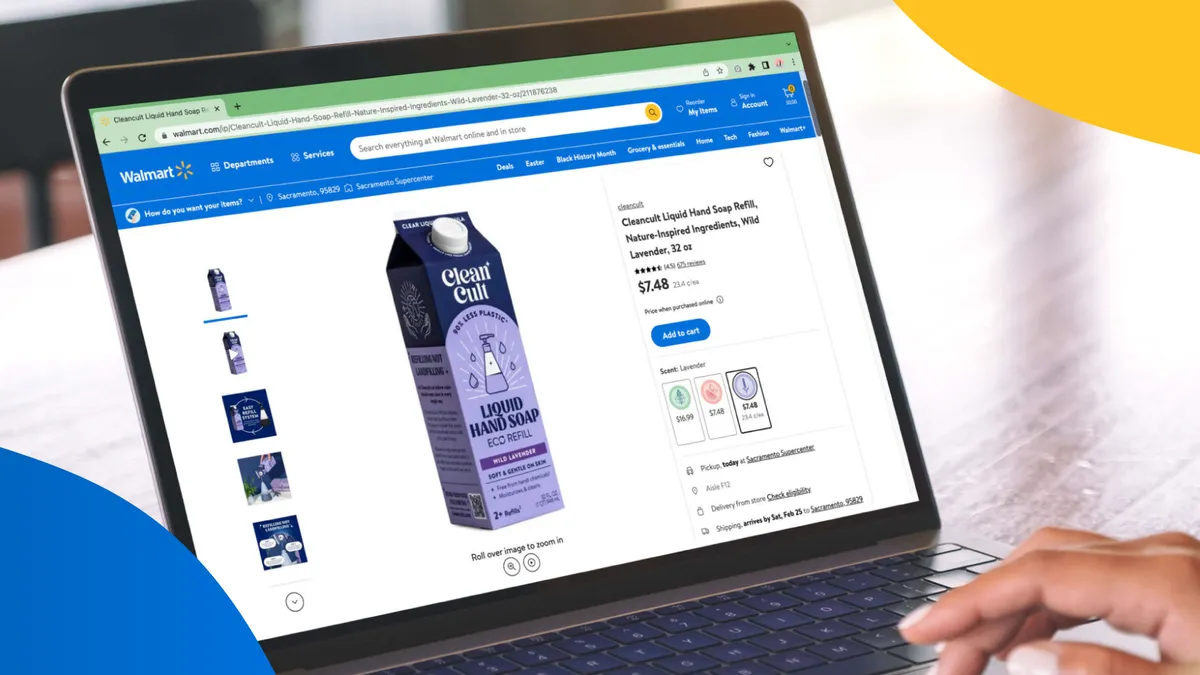DTC brands comprise nearly 13% of all eCommerce business in the U.S., and their ever-growing popularity should come as no surprise. These brands are often the disruptors of the existing market and their hyper-focus on the customer experience results in 23% of consumers stating that DTCs offer better quality products. But launching and operating a DTC brand comes with its own set of challenges, such as:
- Competing against the convenience and accessibility of established retail brands
- Maintaining independence while protecting the brand
- Providing fast and free shipping — including labor and storage costs, the two biggest spending costs for small businesses
So, what avenues exist for these businesses to successfully scale? One possible avenue for growth is to partner with an eCommerce platform, as IBIS World estimates that by 2023, the percentage of business conducted online is forecast to reach 28% of all business activity. If that’s the case, then what do business owners have to look for as they choose the platform that’s right for them?
READ MORE BELOW:
A compelling case study analyzes the success that a DTC brand — the first company to put soap in milk cartons — had by partnering with a national retailer.
When choosing a marketplace platform, consider the following:
- Brand Protection: A trustworthy retail platform will fully protect the IP of your brand, including claims of copyright, trademark, patent, and counterfeit.
- Fees & Commission: Some platforms charge hidden or monthly fees, while some have transparent pricing structures and 0 recurring fees.
- Logistics: Inventory prep, storage, delivery, returns, and customer service become more complex with scale. A platform that has an end-to-end fulfillment network can be one of the fastest ways to optimize your operations and increase customer satisfaction.
- Brand Awareness: A well-known retailer can offer the scale needed to reach millions of built-in customers and can help you meet your marketing objectives with proven results.
The last, and arguably the most important, factor for consideration is something that only a handful of established marketplace platforms can offer — the true omnichannel experience. Being able to reach your next customer on mobile, web, and in brick-and-mortar stores is perhaps the greatest advantage of leveraging the partnership of a national retailer. In addition, this experience provides a way to accommodate consumers’ preferences of in-person drop-off at a retail store for their online returns, as 79% of consumers try to avoid mail-in returns whenever possible.
And that’s where a platform like Walmart Marketplace can truly shine, as it offers:
- Zero monthly or set up fees
- Competitive commission structures
- Total IP protection
- Transparent and cost-effective end-to-end fulfillment solutions, in-store returns included
- Effective and easy-to-use advertising solutions
- A built-in audience of 120 million Walmart.com monthly visitors
- An opportunity for top-performing brands on Walmart.com to expand into Walmart stores nationwide
The Small DTC Brand That Could
An example of a small business that recently had success on Walmart Marketplace is Cleancult. Cleancult, a zero-waste, eco-friendly household cleaning solutions brand, launched on Walmart.com at the beginning of 2022. And in just one year, the brand’s products were distributed through more than 3,000 Walmart stores nationwide.
So how did this DTC brand overcome the unique challenge of penetrating the market that was already dominated by more well-known, national brands?
The Winning Strategy
From the very beginning, Cleancult realized that successfully disrupting the market would require studying and strategizing around the Walmart customer for a hyper-focused experience.
Their winning strategy consists of three main pieces:
- Analyzing price points that convert better with Walmart customers and introducing new SKUs that now make up 50% of their total sales.*
*Source: Walmart first-party data; March 2022–January 2023.
- Leveraging Walmart Fulfillment Services (WFS), Walmart’s cost-effective, state-of-the-art fulfillment solution available to third-party sellers, resulting in 99% of their orders being delivered within 2 days, including throughout the peak holiday season.*
*Source: Walmart first-party data; April–December 2022.
- Increasing brand awareness and product discoverability through Sponsored Search advertising via Walmart Connect, resulting in a sizeable 67% of Cleancult’s total GMV being attributed to Sponsored Search advertising with Walmart Connect.*
*Source: Walmart first-party data; March 2022–January 2023.
Be the Next Success Story
Walmart Marketplace can help create an optimal environment for DTC brands looking to scale due to their unique ecosystem of solutions and increased customer demand for these types of businesses. Learn more about how you can scale on Walmart.com today.
- PipeCandy, The State of the Direct-to-Consumer Industry
- Diffusion, 2022 Direct-to-Consumer Purchase Intent Index
- Forbes, Small Business Statistics of 2023
- IBISWorld, Percentage of Business Conducted Online
- Forbes, Consumers Say Hassle-Free Returns Are More Important Than Ever
- Comscore, Top 50 Multi-Platform Properties (Desktop and Mobile)











